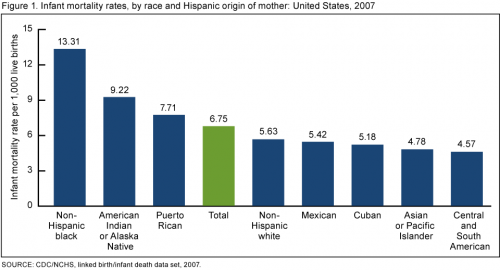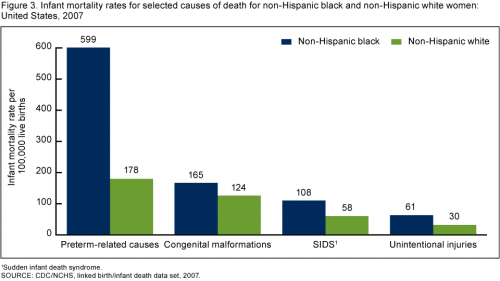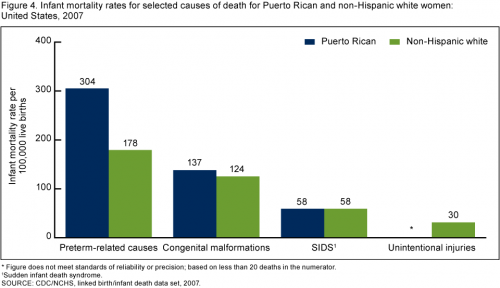Every time I talk about infant mortality as a metric of quality, someone gets upset at me that it should never be used in cross-country comparisons. Can we all agree, though, that it might be instructive to look at infant mortality within the US? Because the CDC has released a brief with some interesting data on infant mortality in this country. For instance, here are the number of infants who died per 1000 births by race and ethnicity of the mother:

The infant mortality rate for non-hispanic blacks is shockingly high; it’s nearly double the rate of the country as a whole. Contrary to what many think. the rates for Mexican, Cuban, Central and South American, and Asian or Pacific Islander mothers were better than those for non-Hispanic white mothers.
Why is this so? It appears that a large part of it has to do with premature birth. Here are data comparing the causes of death for non-Hispanic blacks and non-Hispanic whites:

As you can see, most of the difference between these two groups is due to preterm-related causes. The same holds true for Puerto Rican mothers:
 This would lead me to believe that if we want to have a major impact on infant mortality in the US, specifically in these high risk (and growing) populations, we should focus on preventing preterm labor and delivery. If anyone can think of a better way to do that than by making sure that pregnant women have easy and uninterrupted access to high quality prenatal care, I’d love to hear it.
This would lead me to believe that if we want to have a major impact on infant mortality in the US, specifically in these high risk (and growing) populations, we should focus on preventing preterm labor and delivery. If anyone can think of a better way to do that than by making sure that pregnant women have easy and uninterrupted access to high quality prenatal care, I’d love to hear it.

